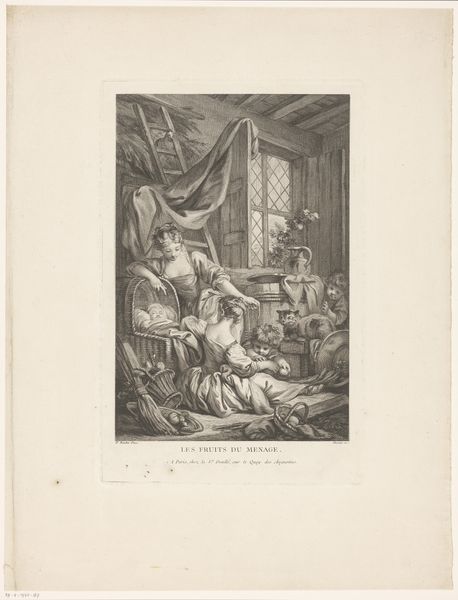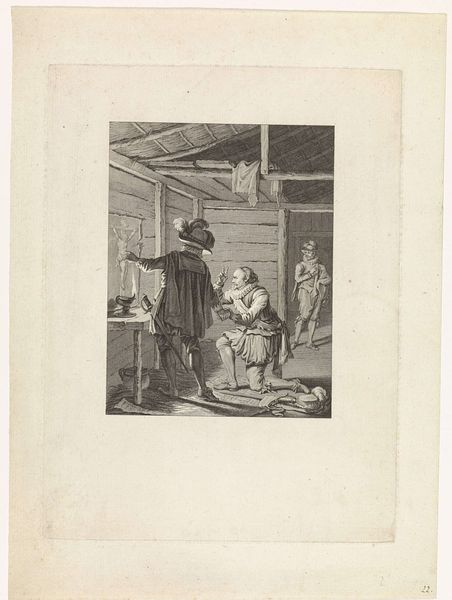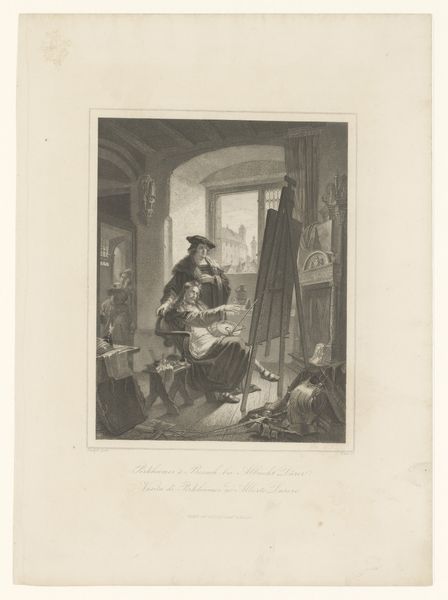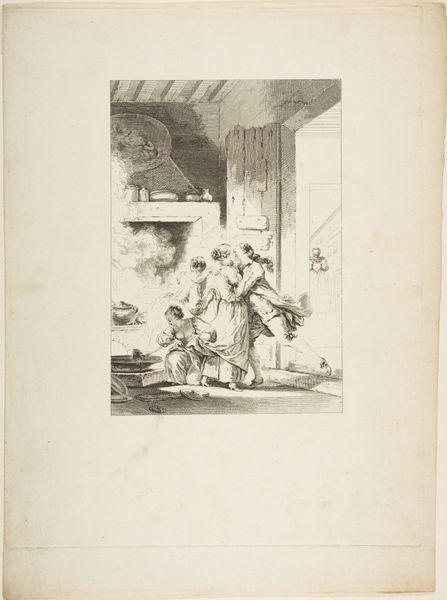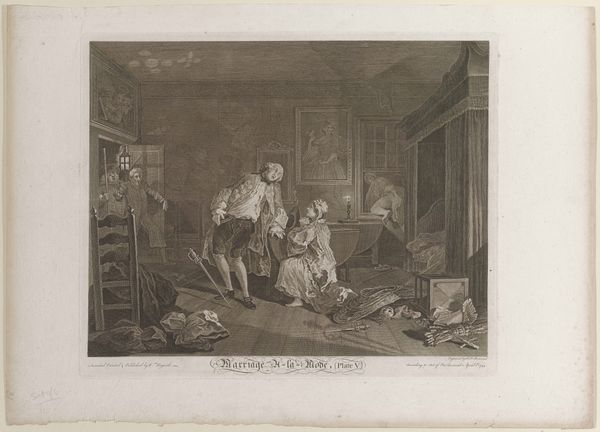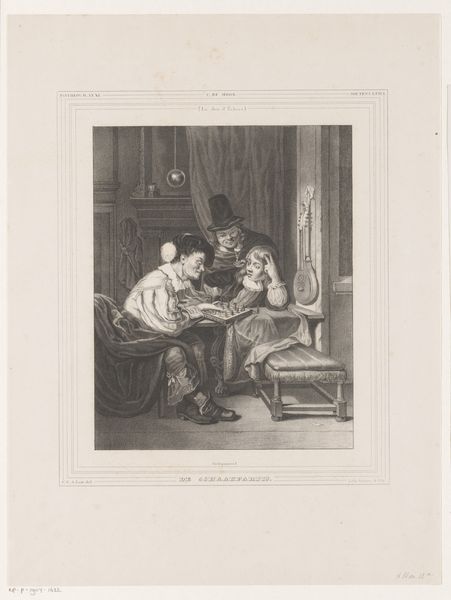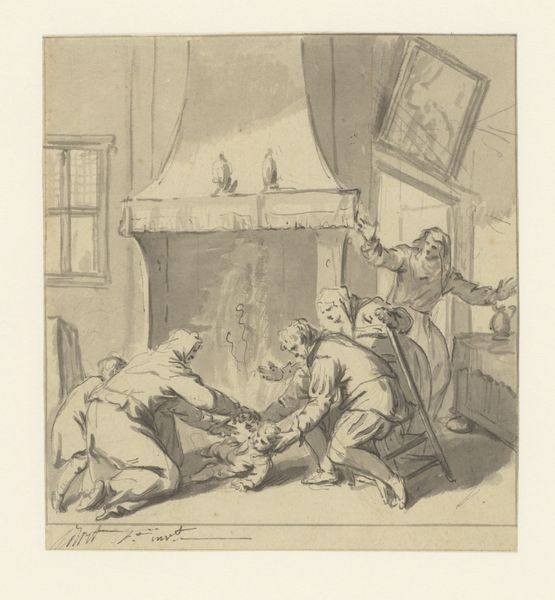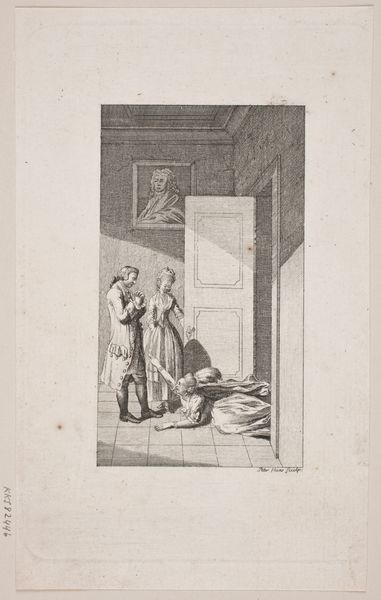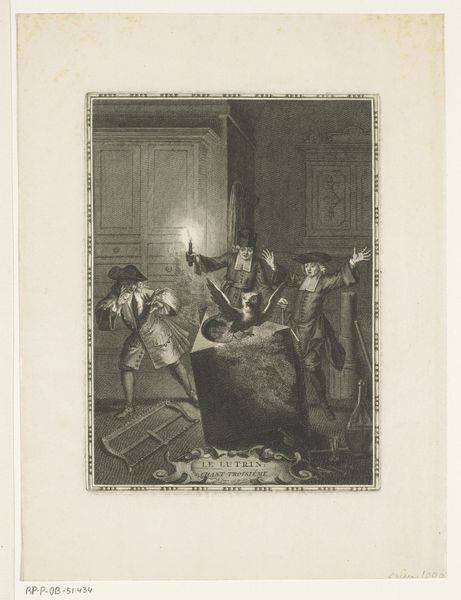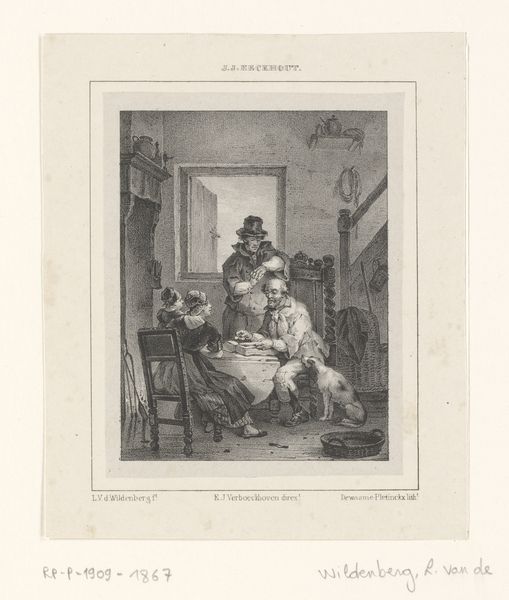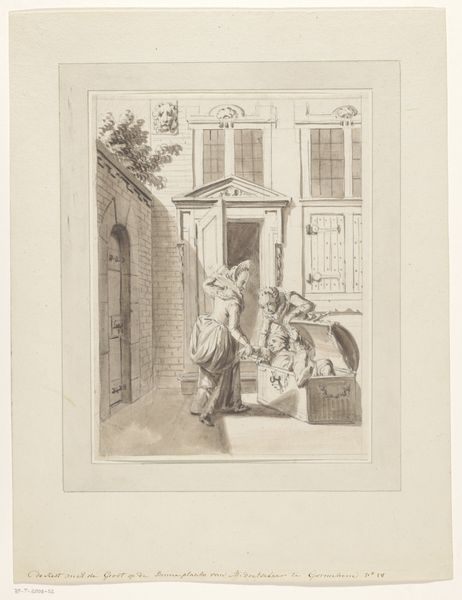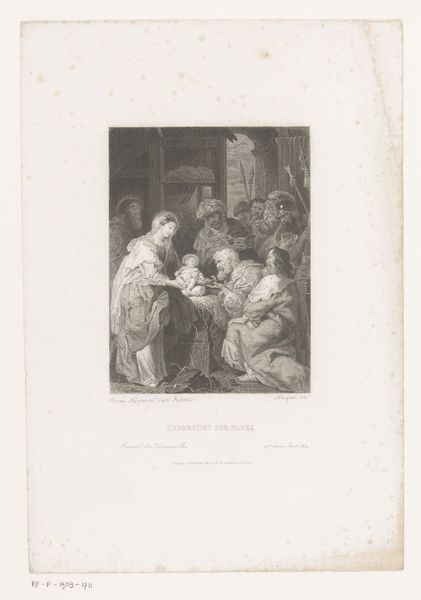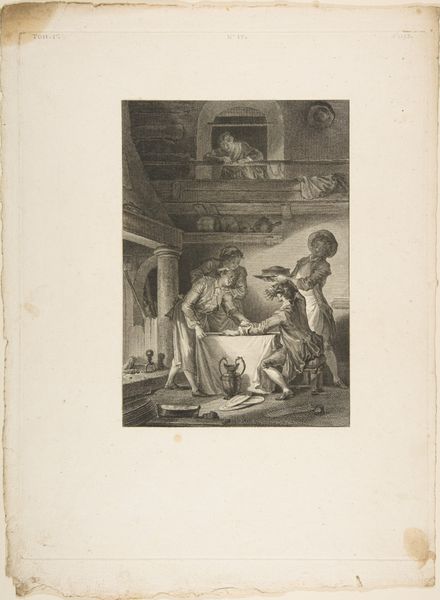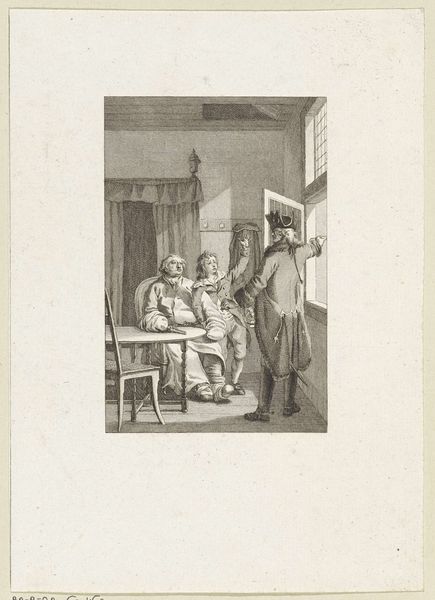
Belphegor, from Contes et nouvelles en vers par Jean de La Fontaine. A Paris, de l'imprimerie de P. Didot, l'an III de la République, 1795 1795
0:00
0:00
drawing, print, etching, engraving
#
drawing
#
neoclacissism
# print
#
etching
#
genre-painting
#
history-painting
#
engraving
Dimensions: Sheet: 12 1/16 × 9 15/16 in. (30.7 × 25.3 cm)
Copyright: Public Domain
Jean-Baptiste Patas etched "Belphegor" in 1795 as an illustration for La Fontaine's tales. Note the open window, framing a distant landscape and two perched birds, symbols of freedom and harmony. Yet, inside, we find domestic chaos; a man in elaborate dress engages with the family and a small dog. The open window has been a familiar motif for centuries, appearing in Renaissance paintings, often symbolizing a transition or revelation. Here, its juxtaposition with the domestic scene creates a tension. It invites reflection on the conflicting desires for freedom and the constraints of familial life. The birds recall the "window" motif in religious iconography, symbolizing divine presence or freedom of the soul. However, the contrast with the earthly struggles suggests a psychological yearning for escape. This image evokes a deep, subconscious tension. This tension speaks to our own internal conflicts between our aspirations and our realities. Ultimately, "Belphegor" reminds us of the cyclical dance between freedom and constraint, a theme that recurs throughout art history. The image persists as a reflection of human experience.
Comments
No comments
Be the first to comment and join the conversation on the ultimate creative platform.
